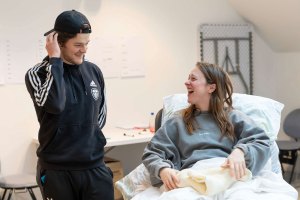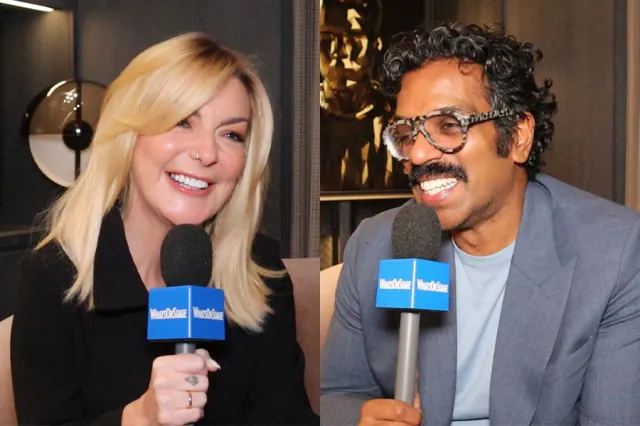Jo Caird: Alternative Perspectives on the Fringe
The
divide between the critical community and the artistic community can
sometimes feel very great: one group passionately creates a piece of
work, the other dispassionately (or so it’s hoped) dissects it; one
spends weeks or months on a show, the other swoops in for a couple of
hours and pronounces its verdict in the form of a 400-word review and
a star rating.
can only maintain their authority (and with it the trust of their
readers), I think, if they keep a certain distance from the work
they’re critiquing. For me, this means not reviewing shows I’ve
written features on. This isn’t to say that journalists who do this
are behaving improperly; it’s just that I personally find it very
difficult to stay objective about a production having had
enthusiastic conversations about it with those involved.
But
while I think that it’s a good idea for journalists to stand apart
from the particular shows they review, I also feel it’s
extremely valuable for the people writing about theatre to have some
experience of the work that goes into making it. Some critics have
gone the whole hog, taking on a defined role in the creative process,
as Nicholas de Jongh did when he wrote Plague Over
England (the success of which led him to resign from the
Evening Standard to pursue a full-time writing
career), or as Mark Shenton did when he produced Charlotte
Eilenberg’s Shrunk at the Cock Tavern last year.
Now,
I’m not planning on becoming a theatre-maker – my brief fling with
musical theatre during Eyebrow Theatre’s one-off charity performance
of The Boyfriend earlier this year was sufficient
to remind me where my skills do and do not lie – but every year at
the Fringe I get a little taste of the realities of the business when
I act as general dogsbody and assistant to my
performer/comedian/musician boyfriend.
My work takes precedence, of
course, so I’m only really able to do bits and pieces in the run-up
to the festival and in the first few days before my review schedule
goes nuts (watch this space), but it’s an illuminating process and
one that makes me a better reviewer I think. On my Edinburgh blog last year I wrote about the challenge of giving
shows negative reviews without resorting to spite or mockery or
exaggeration: it’s importance always to remember that behind even the
most appalling work there artists who are passionate – albeit
misguidedly perhaps – about what they do and who have worked
incredibly hard.
Almost
all the critics working the festival have some connection with
artists presenting work up here; they should therefore have a good
understanding of the possible impact of what they write on the
individuals involved. I’ve got plenty of friends and acquaintances
doing productions, of course, but it’s the work I do on my
boyfriend’s Fringe shows each year – the alternative perspective I
gain from driving equipment around, stapling reviews to flyers and bugging him about the bits of the show in need of rehearsal – that keeps me aware of just how challenging and
exhausting this environment is for the artists involved.












